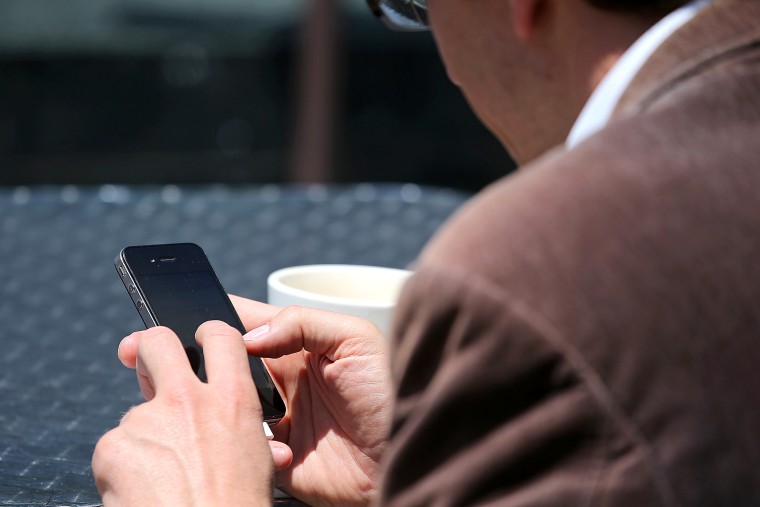Almost two weeks after a judge ruled that the National Security Agency's acquisition of communications data was likely unconstitutional, another federal judge has upheld the program as lawful, escalating a legal confrontation that seems bound for the Supreme Court.
"The September 11th terrorist attacks revealed, in the starkest terms, just how dangerous and interconnected the world is," wrote U.S. District Judge William H. Pauley III on Friday. "While Americans depended on technology for the conveniences of modernity, al-Qaeda plotted in a seventh-century milieu to use that technology against us. It was a bold jujitsu. And it succeeded because conventional intelligence gathering could not detect diffuse filaments connecting al-Qaeda."
Friday's ruling was the second to uphold the NSA's data gathering program, the scope of which was first publicly revealed in June through leaks facilitated by former NSA contractor Edward Snowden. The ruling is a relief for the NSA, which has found itself being battered by criticism not only from a federal judge and congressional legislators but the White House-appointed surveillance policy review board. The ruling may strengthen the Obama administration's position as it resists efforts to significantly curtail the program.
Nearly two weeks ago, George W. Bush-appointed Judge Richard Leon ruled that the NSA's metadata program was likely unconstitutional. The program records the time, duration, frequency and the numbers involved in each call but does not record the content of the calls.
Pauley's ruling contradicts Leon's at almost every turn--even on whether the metadata program is effective at preventing terrorism. Where Leon had written that he had "serious doubts about the efficacy of the metadata collection program," Pauley wrote that "the effectiveness of bulk telephony metadata collection cannot be seriously disputed." (Key federal legislators have seriously disputed it).
The American Civil Liberties Union filed this lawsuit shortly after Snowden leaked a secret Foreign Intelligence Surveillance Court order renewing an NSA request for the all the customer communications records held by a Verizon subsidiary. While the FISA court had previously upheld the NSA's activities as lawful, only Snowden's leaks provided civil liberties groups with the capability to challenge NSA surveillance in open court.
Pauley took notice of that dynamic in his ruling. While dismissing part of the ACLU's lawsuit, he took a direct shot at Snowden, arguing that Congress never intended for anyone other than recipients of data requests to challenge the government's demands. "It cannot possibly be that lawbreaking conduct by a government contractor that reveals state secrets--including the means and methods of intelligence gathering--could frustrate Congress' intent," Pauley wrote.
Last week, Leon had ruled the NSA data gathering program unconstitutional because modern technology had altered the level of personal detail the government could glean from such information and the volume of information that could be gathered. Pauley disagreed, concluding that "the collection of breathtaking amounts of information unprotected by the Fourth Amendment does not transform that sweep into a Fourth Amendment search."
Leon had argued that a 1979 ruling holding that giving up private information to a third party, such as a phone company, had been outpaced by modern communications technology. By contrast, Pauley reaffirmed the principle behind that ruling. "When a person voluntarily conveys information to a third party, he forfeits his right to privacy in the information," Pauley wrote. In addition, Pauley wrote, "the government repudiates any notion that it conducts the type of data mining the ACLU warns about in its parade of horribles."
Where Judge Leon had argued that people "have an entirely different relationship with telephones than they did thirty-four years ago," Pauley wrote "this court observes that their relationship with telecommunications providers has not changed and is just as frustrating."
Pauley's ruling does not settle the issue any more than Leon's did--it does suggest that the conflict over the legality of the NSA's metadata program will likely only end once the Supreme Court has the final say.
"This blunt tool only works because it collects everything. Such a program, if unchecked, imperils the civil liberties of every citizen," Pauley wrote. Despite finding the program lawful, he noted that "the question of whether that program should be conducted is for the other two coordinate branches of Government to decide."
Pauley's assertion that the program "works," or that "the effectiveness of bulk telephony metadata collection cannot be seriously disputed" can be seriously disputed. The three examples of plots foiled by the NSA metadata program cited by Pauley were found by an an October report in ProPublica to either have exaggerated the NSA's role or the threat itself. The ProPublica report was cited in Leon's ruling, which Pauley refers to in his own.
In July, Democratic Senators Ron Wyden of Oregon and Mark Udall of Colorado, both members of the Senate intelligence committee, said that the NSA has “significantly exaggerated this program’s effectiveness,” and warned that “assertions from intelligence agencies about the value and effectiveness of particular programs should not simply be accepted at face value.”
The ACLU said it intended to appeal the decision. “We are extremely disappointed with this decision," said the ACLU's Jameel Jaffer in a statement. “As another federal judge and the president’s own review group concluded last week, the National Security Agency’s bulk collection of telephony data constitutes a serious invasion of Americans’ privacy."
